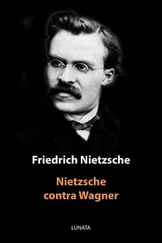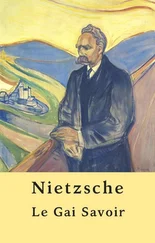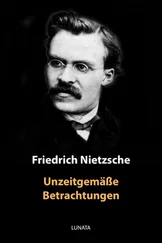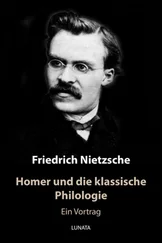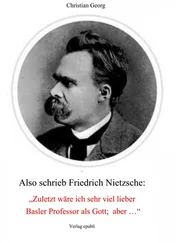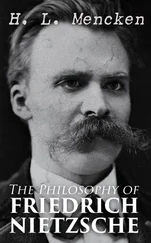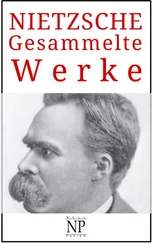Consequently other instincts had to step into the foreground, in order to constitute an entity, a power able to stand alone—in short, a condition of tense sorrow was necessary, like that out of which the Jews had derived their instinct of self-preservation....
The persecution of Christians was invaluable for this purpose.
Unity in the face of danger; the conversion of the masses becomes the only means of putting an end to the persecution of the individual. (The notion "conversion" is therefore made as elastic as possible.)
174.
The Christian Judaic life: here resentment did not prevail. The great persecutions alone could have driven out the passions to that extent—as also the ardour of love and hate.
When the creatures a man most loves are sacrificed before his eyes for the sake of his faith, that man becomes aggressive ; the triumph of Christianity is due to its persecutors.
Asceticism is not specifically Christian: this is what Schopenhauer misunderstood. It only shoots up in Christianity, wherever it would have existed without that religion.
Melancholy Christianity, the torture and torment of the conscience, also only a peculiarity of a particular soil, where Christian values have taken root: it is not Christianity properly speaking. Christianity has absorbed all the different kinds of diseases which grow from morbid soil: one could refute it at one blow by showing that it did not know how to resist any contagion. But that precisely is the essential feature of it. Christianity is a type of decadence.
175.
The reality on which Christianity was able to build up its power consisted of the small dispersed Jewish families, with their warmth, tenderness, and peculiar readiness to help, which, to the whole of the Roman Empire, was perhaps the most incomprehensible and least familiar of their characteristics; they were also united by their pride at being a "chosen people," concealed beneath a cloak of humility, and by their secret denial of all that was uppermost and that possessed power and splendour, although there was no shade of envy in their denial. To have recognised this as a power, to have regarded this blessed state as communicable, seductive, and infectious even where pagans were concerned—this constituted Paul's genius: to use up the treasure of latent energy and cautious happiness for the purposes of "a Jewish Church of free confession," and to avail himself of all the Jewish experience, their propaganda, and their expertness in the preservation of a community under a foreign power—this is what he conceived to be his duty. He it was who discovered that absolutely unpolitical and isolated body of paltry people, and their art of asserting themselves and pushing themselves to the front, by means of a host of acquired virtues which are made to represent the only forms of virtue ("the self-preservative measure and weapon of success of a certain class of man").
The principle of love comes from the small community of Jewish people: a very passionate soul glows here, beneath the ashes of humility and wretchedness: it is neither Greek, Indian, nor German. The song in praise of love which Paul wrote is not Christian; it is the Jewish flare of that eternal flame which is Semitic. If Christianity has done anything essentially new in a psychological sense, it is this, that it has increased the temperature of the soul among those cooler and more noble races who were at one time at the head of affairs; it discovered that the most wretched life could be made rich and invaluable, by means of an elevation of the temperature of the soul....
It is easily understood that a transfer of this sort could not take place among the ruling classes: the Jews and Christians were at a disadvantage owing to their bad manners—spiritual strength and passion, when accompanied by bad manners, only provoke loathing (I become aware of these bad manners while reading the New Testament). It was necessary to be related both in baseness and sorrow with this type of lower manhood in order to feel anything attractive in him.... The attitude a man maintains towards the New Testament is a test of the amount of taste he may have for the classics (see Tacitus); he who is not revolted by it, he who does not feel honestly and deeply that he is in the presence of a sort of fœda superstitio when reading it, and who does not draw his hand back so as not to soil his fingers—such a man does not know what is classical. A man must feel about "the cross" as Goethe did. 1
176.
The reaction of paltry people :—Love provides the feeling of highest power. It should be understood to what extent, not man in general, but only a certain kind of man is speaking here.
"We are godly in love, we shall be 'the children of God'; God loves us and wants nothing from us save love"; that is to say: all morality, obedience, and action, do not produce the same feeling of power and freedom as love does;—a man does nothing wicked from sheer love, but he does much more than if he were prompted by obedience and virtue alone.
Here is the happiness of the herd, the communal feeling in big things as in small, the living sentiment of unity felt as the sum of the feeling of life. Helping, caring for, and being useful, constantly kindle the feeling of power; visible success, the expression of pleasure, emphasise the feeling of power; pride is not lacking either, it is felt in the form of the community, the House of God, and the "chosen people."
As a matter of fact, man has once more experienced an " altération" of his personality : this time he called his feeling of love—God. The awakening of such a feeling must be pictured; it is a sort of ecstasy, a strange language, a "Gospel"—it was this newness which did not allow man to attribute love to himself—he thought it was God leading him on and taking shape in his heart. "God descends among men," one's neighbour is transfigured and becomes a God (in so far as he provokes the sentiment of love), Jesus is the neighbour, the moment He is transfigured in thought into a God, and into a cause provoking the feeling of power.
177.
Believers are aware that they owe an infinite amount to Christianity, and therefore conclude that its Founder must have been a man of the first rank.... This conclusion is false, but it is typical of the reverents. Regarded objectively, it is, in the first place, just possible that they are mistaken concerning the extent of their debt to Christianity: a man's convictions prove nothing concerning the thing he is convinced about, and in religions they are more likely to give rise to suspicions.... Secondly, it is possible that the debt owing to Christianity is not due to its Founder at all, but to the whole structure, the whole thing—to the Church, etc. The notion "Founder" is so very equivocal, that it may stand even for the accidental cause of a movement: the person of the Founder has been inflated in proportion as the Church has grown: but even this process of veneration allows of the conclusion that, at one time or other, this Founder was something exceedingly insecure and doubtful—in the beginning.... Let any one think of the free and easy way in which Paul treats the problem of the personality of Jesus, how he almost juggles with it: some one who died, who was seen after His death,—some one whom the Jews delivered up to death—all this was only the theme— Paul wrote the music to it.
178.
The founder of a religion may be quite insignificant—a wax vesta and no more !
179.
Concerning the psychological problem of Christianity.—The driving forces are : resentment, popular insurrection, the revolt of the bungled and the botched. (In Buddhism it is different: it is not born of resentment. It rather combats resentment because the latter leads to action !)
Читать дальше



